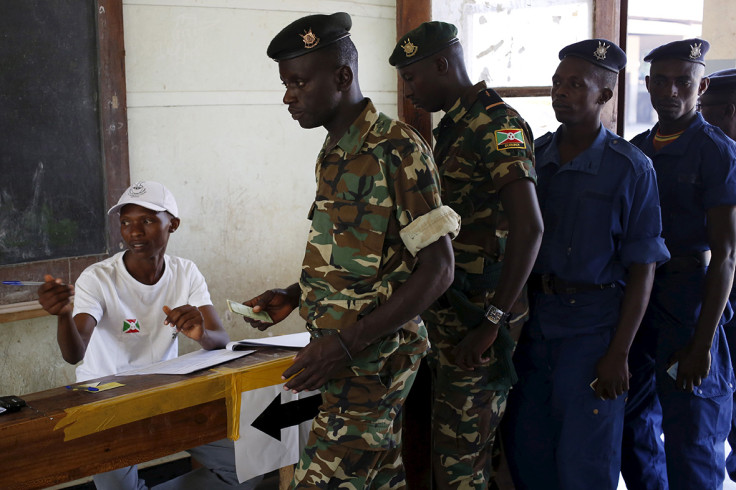Burundi election: Opposition leader calls for government unity to avoid armed conflict

Burundi's opposition leader, Agathon Rwasa, has urged President Pierre Nkurunziza to form a united government in order to avoid a conflict in the country.
Rwasa, from the National Liberation Forces, made the comment as the country is counting votes one day after holding controversial presidential election.
Rwasa, who was a Hutu rebel leader during Burundi's civil war (1993-2005), told Reuters that unity in the government could help prevent generals who were behind a failed coup in May 2015 from taking up arms and further deepening the country's ongoing crisis.
"Some have already been waving the threat of armed struggle. For the sake of Burundi, the idea of a government of national unity can be accepted," said Rwasa.
He added that the country should hold new elections, possibly in 2016.
The presidential election, slammed by the US as "not credible", occurred after months of unrest started when Nkurunziza announced he would run for a third term in April.
The announcement sparked violent protests across the nation, which caused at least 100 deaths and prompted more than 144,000 people to flee to neighbouring countries fearing a civil war could erupt.
Protesters accused Nkurunziza of violating the constitution and the Arusha Peace Agreement, which says the president can only stay in power for two terms.
Nkurunziza's supporters argued the president's first term should not be counted as he was chosen by the Parliament and not by the people in an election as is specified in the agreement.
The Burundian police as well as the Imbonerakure – the youth wing of Nkurunziza's party National Council for the Defense of Democracy – have been accused of committing abuses, such as killings and torture, against protesters.
Under three-quarters of the 3.8 million people on the country's electoral roll went to polling stations on Tuesday (21 July), amid reports that the low turnout was due to fears of persecution.
According to local sources, turnout was lower in urban areas "because people were more fearful" than in rural areas.
© Copyright IBTimes 2025. All rights reserved.






















